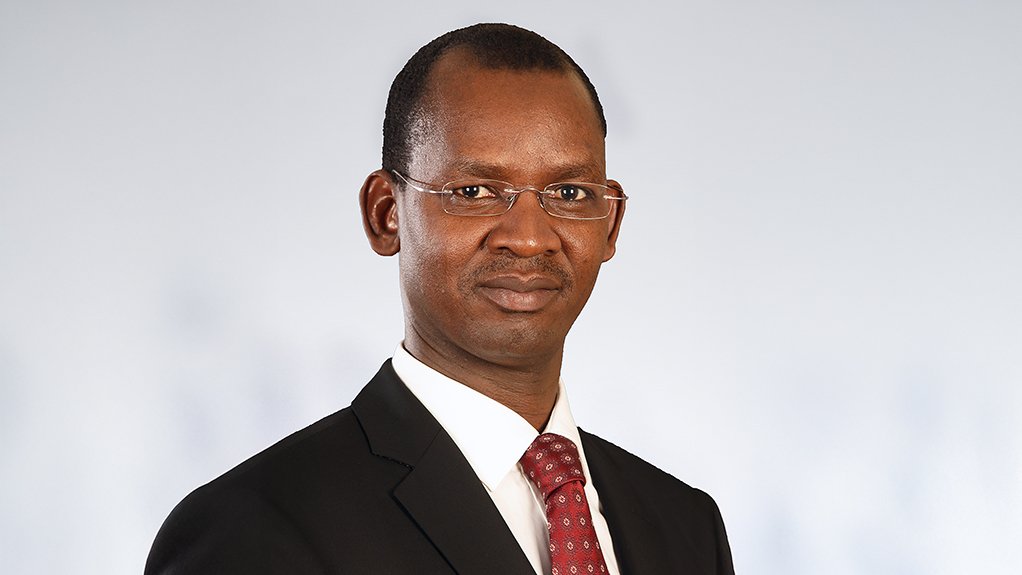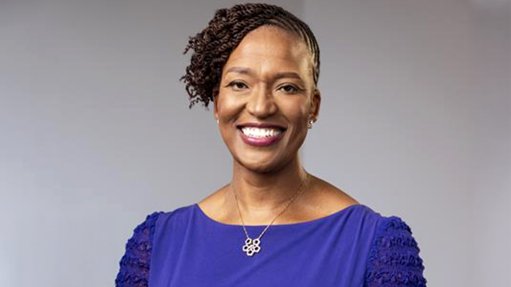African CEOs remain optimistic despite challenges, emphasise AI adoption as strategic priority
Amid global economic uncertainty and geopolitical tensions, African CEOs have demonstrated resilience despite challenges, expressing optimism about their own organisations’ growth prospects.
According to the ‘KPMG 2025 Africa CEO Outlook Survey’, CEOs identified generative AI; talent; environmental, social and governance (ESG); and cybersecurity as the top four forces shaping their strategic priorities.
The survey captured the perspectives of 130 CEOs across Southern, East and West Africa and forms part of KPMG’s global CEO Outlook.
The survey has revealed that 78% of CEOs have expressed strong business confidence, up by more than 12% year-on-year.
It has also indicated that 98% expect business expansion over the short term, while 86% of African CEOs have said they are likely to pursue acquisitions in the next three years – up 77% from last year.
Confidence in domestic economies is also rising, with 63% of African CEOs expressing optimism about their country’s growth prospects, up from 61% in 2024.
The report also noted that African CEOs are facing the same global forces - technological disruption, inflationary pressure and geopolitical tension - but locally they have identified three pressing challenges to doing business in Africa.
This includes integrating AI into core operations (32%), managing regulatory pressures (25%) and strengthening cybersecurity (24%).
However, 72% have adjusted their growth strategies to deal with market challenges, resulting in a continent where optimism is returning, strategy is converging, and leadership is being redefined, KPMG said in a media release.
During the launch of the report, which took place in Nairobi, Kenya, on November 5, KPMG Africa CEO and chairperson Ignatius Sehoole highlighted the complexities facing CEOs, noting stakeholder expectations and the importance of long-term value creation.
Additionally, KPMG East Africa CEO and senior partner Benson Ndung’u noted that, despite volatility in the geopolitical space, which linked to economic uncertainty and, consequently, supply chain disruptions, the perception among CEOs was that opportunities remained despite challenges.
“We have become accustomed, over the years, in leading through volatility. We must lead through the opportunity that comes with the volatility and the uncertainty,” he said.
GENERATIVE AI
The report also reveals that AI has emerged as the top strategic priority for African CEOs heading into 2026, with 71% of respondents investing in AI to drive operational efficiency and long-term resilience, and 26% planning to allocate more than 20% of their yearly budget to AI, nearly double the global average of 14%.
KPMG, in the media release, says this high level of investment by Africa CEOs, despite declining economic optimism, reflects a shift in mindset where Africa CEOs in West Africa (65%), East Africa (40%) and Southern Africa (38%) all view AI not only as a tool for future growth, but as an immediate lever for operational efficiency, better decision-making and long-term resilience.
With this in mind, Ndung’u described technology and AI, specifically agentic AI, as being critical in the way CEOs were driving their strategy, noting that it was being incorporated as part of their strategic focus.
The report indicates, however, that infrastructure gaps complicate progress of technology and AI adoption in Africa as many African organisations continue to face unreliable power supply, limited broadband connectivity and outdated computing systems that restrict the use of data-intensive AI solutions.
In the same way, 96% cite data readiness as a challenge, highlighting the need for local data curation and infrastructure investment.
Ndung’u also pointed out that there were concerns regarding ethical AI, regulations and the integrity of data.
However, instead of slowing innovation, KPMG said African leaders are taking a pragmatic step forward, with cybersecurity and digital resilience investment topping the list (45%), followed by AI integration across workflows (40%) and with 34% investing in immediate, scalable technology and solution innovation.
As organisations accelerate digital transformation by adopting AI and other advanced technologies, KPMG pointed out that a critical cybersecurity risk is emerging from the threat posed by quantum computing to traditional encryption and data protection frameworks.
Yet, across the three regions few CEOs show concern about the risks from quantum computing on encryption, with concern about risk ranging from 14% in West Africa, 22% in Southern Africa and 35% in East Africa.
KPMG said these low numbers signal a critical vulnerability at a time when African economies are deepening their reliance on digital systems and cross-border data exchange.
During the launch, KPMG East Africa partner and advisory head Gerald Kasimu noted that, as organisations deployed AI, there were large volumes of sensitive data being processed.
He said that the boundaries between data privacy, cybersecurity and moral integrity became blurred.
“The question then is, how do you engender a trusted environment . . . you can’t necessarily just purely focus on performance and innovation, but you have got to ensure that as we implement these systems, as we adopt them, we do so with security in mind by design, not as an afterthought . . . and there are existing trusted AI frameworks that we see organisations implementing,” he said, noting that KPMG had a trusted framework on the implementation of AI.
UPSKILLING
With the increasing adoption of AI, the report highlighted that talent remains central to AI adoption and organisational transformation with 81% of African CEOs believing that upskilling in AI will directly impact their success, 67% redeploying staff into AI-enabled roles and 88% expecting to increase headcount.
The report explained that action reinforces that AI complements rather than replaces human capability and in fact broader digital and technological literacy is viewed as the top leadership capability that is becoming essential, with AI understanding and digital literacy ranking as one of the top three of 17 leadership capabilities in today’s fast changing environment.
“The future effectively will belong to those who prepare their people, not just implementing the technology,” said Kasimu.
KPMG noted that, as Africa had a relatively younger workforce, it provided a buffer, giving more time to plan and build future-ready talent pipelines, where only 15% of Africa CEOs reported generational gaps in critical future skills such as AI adoption – 30% globally.
The report pointed that, in terms of workforce strategy, regionally, we are seeing very similar strategies to long-term workforce changes in response to AI, with West Africa leading the way across two key areas, namely redesigning roles and career paths to reflect AI collaboration (65%) and deploying staff from traditional roles to AI-enabled roles (70%).
East African CEOs are leading the way when it comes to hiring new talent with AI and tech capabilities (62%), whereas Southern Africa is placing a similar focus across these three areas, the report highlighted.
In this vein, Sehoole emphasised the importance of education and interacting with universities, governments and with education departments, highlighting the importance of the private sector in engaging with government.
ESG
Meanwhile, the report also noted that African CEOs remain committed to ESG goals despite regulatory complexity, with 79% showing confidence in their ability to navigate ESG regulations across markets.
Even though 51% prioritise compliance and reporting standards to meet investor and regulatory demands, with only 55% demonstrating confidence in their capability and capacity required to meet new reporting standards, KPMG said they are significantly behind global CEOs at 77%.
The report noted that Africa faces higher regulatory challenges, with 21% of CEOs citing the complexity of decarbonising supply chains as their top barrier to achieving net-zero and climate ambitions and a lack of skills and expertise to successfully implement solutions, contributing to this lack of confidence.
However, African CEOs remain resilient, with 74% using AI to reduce emissions and improve energy efficiency to meet these demands and 46% driving sustainability within core strategy.
West Africa leads the way in prioritising compliance and reporting standards to meet investor and regulatory demands at 60%, followed by East Africa (48%) and Southern Africa (35%).
As Africa’s business landscape continues to evolve, the 2025 KPMG CEO Outlook reveals a continent brimming with optimism.
“CEOs are not only responding to global headwinds, but are reimagining growth through innovation, resilience and purpose-driven leadership,” KPMG said in the release.
With strategic investments in AI, talent, and ESG, African leaders are laying the foundation for sustainable transformation and a continent that is set for continued growth, it noted.
Article Enquiry
Email Article
Save Article
Feedback
To advertise email advertising@creamermedia.co.za or click here
Press Office
Announcements
What's On
Subscribe to improve your user experience...
Option 1 (equivalent of R125 a month):
Receive a weekly copy of Creamer Media's Engineering News & Mining Weekly magazine
(print copy for those in South Africa and e-magazine for those outside of South Africa)
Receive daily email newsletters
Access to full search results
Access archive of magazine back copies
Access to Projects in Progress
Access to ONE Research Report of your choice in PDF format
Option 2 (equivalent of R375 a month):
All benefits from Option 1
PLUS
Access to Creamer Media's Research Channel Africa for ALL Research Reports, in PDF format, on various industrial and mining sectors
including Electricity; Water; Energy Transition; Hydrogen; Roads, Rail and Ports; Coal; Gold; Platinum; Battery Metals; etc.
Already a subscriber?
Forgotten your password?
Receive weekly copy of Creamer Media's Engineering News & Mining Weekly magazine (print copy for those in South Africa and e-magazine for those outside of South Africa)
➕
Recieve daily email newsletters
➕
Access to full search results
➕
Access archive of magazine back copies
➕
Access to Projects in Progress
➕
Access to ONE Research Report of your choice in PDF format
RESEARCH CHANNEL AFRICA
R4500 (equivalent of R375 a month)
SUBSCRIBEAll benefits from Option 1
➕
Access to Creamer Media's Research Channel Africa for ALL Research Reports on various industrial and mining sectors, in PDF format, including on:
Electricity
➕
Water
➕
Energy Transition
➕
Hydrogen
➕
Roads, Rail and Ports
➕
Coal
➕
Gold
➕
Platinum
➕
Battery Metals
➕
etc.
Receive all benefits from Option 1 or Option 2 delivered to numerous people at your company
➕
Multiple User names and Passwords for simultaneous log-ins
➕
Intranet integration access to all in your organisation





















